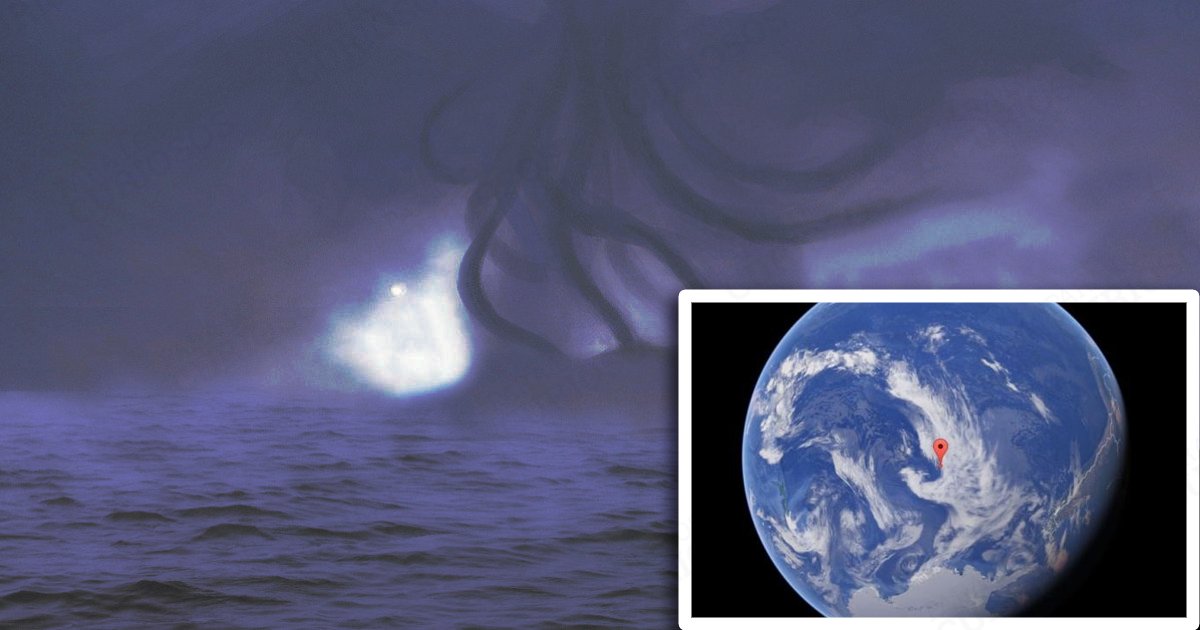Table of Contents
Nemo Point is what experts call a pole of inaccessibility, a place that, because of its remote location, is extremely difficult to access.
There are several poles of inaccessibility in the world. One of the most famous is Eurasia, which is the farthest place on Earth from the open sea, and is located in Xinjiang province, China.
Nemo Point: the most dangerous place in the ocean that no one dares to explore
Nemo Point is the farthest place in the ocean from land and is located in the southern Pacific Ocean, 2,688 kilometers from Antarctica and several small oceanic islands.
The ocean floor at this point is about 3,700 meters deep.
How was it discovered?
Nemo Point is named after the captain of the Nautilus, the ship in Jules Verne’s fantasy novel 20,000 Leagues Under the Sea.
Nemo means “no one” in Latin, an appropriate name for what is probably the loneliest place on Earth. Because of its qualities, Nemo Point has been named “the most inaccessible place on Earth.”
It was officially pinpointed in 1992 by Croatian-Canadian engineer Hrvoje Lukatela, who calculated its coordinates using a specialized computer program that incorporated the Earth’s ellipsoid shape for maximum accuracy.
Its isolation is so extreme that often the people closest to Nemo Point are not even on Earth, but are astronauts on the International Space Station (ISS). The ISS orbits the Earth at a maximum of 416 km, while the nearest inhabited land mass is more than 2,700 km away.
What is hiding there?
Officially, Nemo Point is located within what they call the “South Pacific Uninhabited Zone”, a region completely devoid of humans, and which, because of its inaccessibility, has been used as a graveyard for decommissioned space vehicles.
There have been many rumors about the type of living being that would survive in such a place and in 1997 something very unusual happened that caused fear, excitement and provoked much uncertainty: the sound known as “The Bloop” was recorded in the vicinity of Nemo Point.
The Bloop was a series of strange and downright spooky high-frequency sound waves detected by the National Oceanic and Atmospheric Administration. It was rumored to be a form of communication from a huge sea monster, as it was louder than the sound emitted by a blue whale.
The rumors were fueled by the short story The Call of Cthulhu by horror master H.P. Lovecraft, considered one of his masterpieces. In the story the protagonist finds a ship’s officer’s log, in which he describes his visit to a lost city in the Pacific Ocean whose coordinates place it very close to Point Nemo, despite the fact that the story appeared 66 years before its discovery.
Once there, the crew witnesses the rebirth of Cthulhu, an evil god who slept in the depths of the ocean for thousands of years, until the time was right for him to awaken and unleash his demonic hordes upon the world.
Of course, all this is just fiction, and a group of scientists determined that “The Bloop” was actually the sound resulting from the breakup of an iceberg in the middle of the ocean, which generates ultra-low frequency waves inaudible to humans.
However, experts indicate that, because of the poverty and isolation of Nemo Point, the richness of its fauna would actually be very small, to the extent that oceanographer Steven D’Hondt of the University of Rhode Island called it “the least biologically active region of the ocean in the world”.
However, the facts will never change the eerie and mysterious reputation of the most isolated and inaccessible place on Earth.
There may not be anything too remarkable there, but our minds like to imagine the kind of beings that might haunt such a lonely place.





